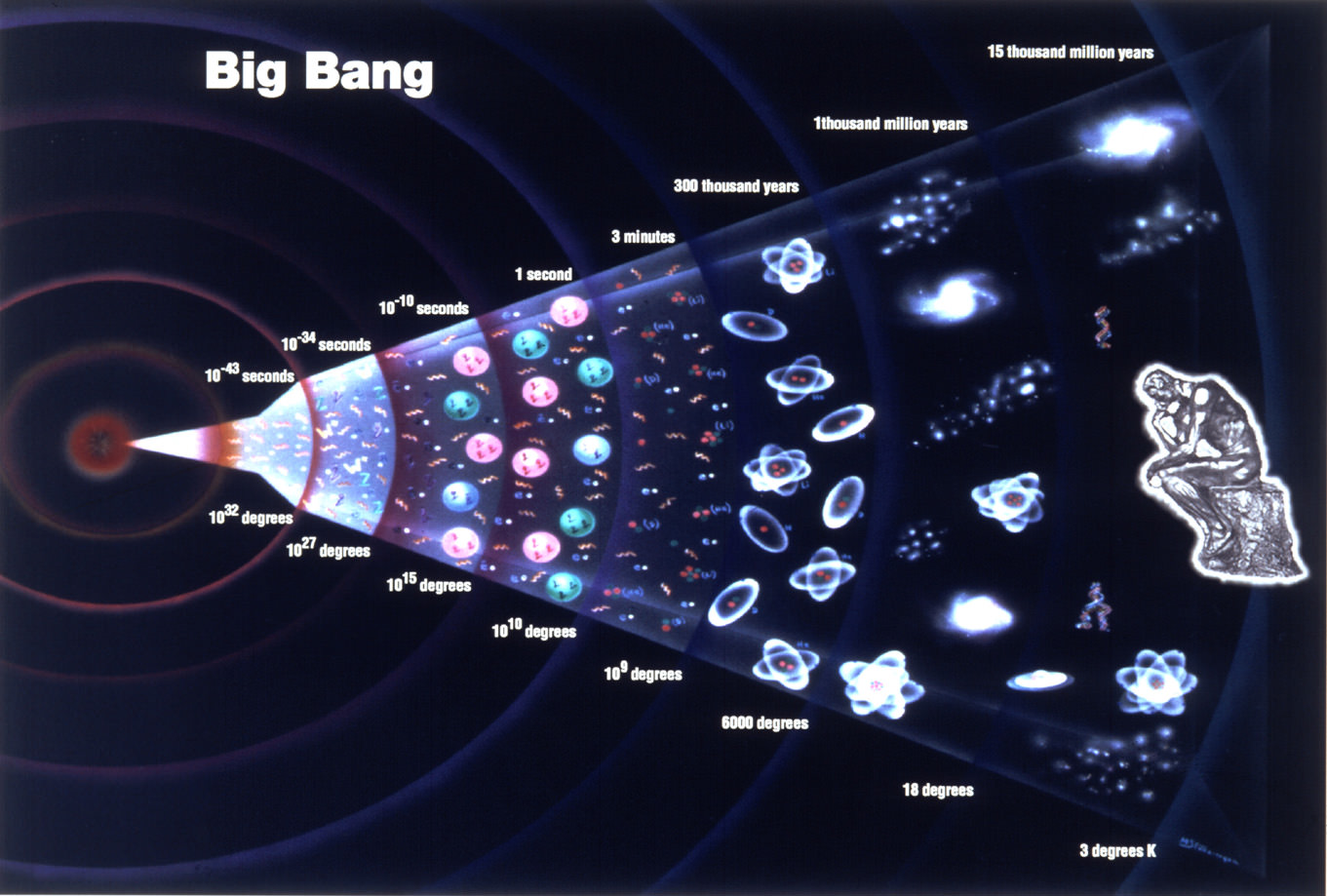10-lecture
series, ‘Origins: Life, the Universe and Everything’ starts Sept. 12
 Hakeem
Oluseyi has gone through his own amazing evolution, from a gun-carrying teen to
an astrophysicist at NASA who co-hosts two TV shows and who appears regularly
on CNN, NBC, MSNBC and Fox News.
Hakeem
Oluseyi has gone through his own amazing evolution, from a gun-carrying teen to
an astrophysicist at NASA who co-hosts two TV shows and who appears regularly
on CNN, NBC, MSNBC and Fox News.
When
he visits the University of Rhode Island Tuesday, Sept. 12, at 7 p.m., he’ll
talk about the even more astonishing and mysterious evolution of the universe
in his lecture, “The Birth of Being: From the Big Bang to Babies.”
Oluseyi
will lead off the University’s Honors Colloquium, its premier
free, public lecture series, “Origins: Life, the Universe and
Everything.” All 10 lectures start at 7 p.m. and all but one will be held in
Edwards Hall, 64 Upper College Road.
Tickets are no longer available for the second lecture on Sept. 19 with Jane Goodall at the Ryan Center.
Tickets are no longer available for the second lecture on Sept. 19 with Jane Goodall at the Ryan Center.
Space sciences education manager for NASA’s Science Mission Directorate, Oluseyi earned his master’s degree and doctorate in physics at Stanford University, and worked at a Silicon Valley company where he conducted research on computer chips, which earned him eight U.S. patents and four European Union patents.
His inventions can be found in computer chips used every day. In addition to his position at NASA, Oluseyi is a distinguished research professor in the Department of Physics & Space Sciences at Florida Institute of Technology.
Talking
about the scientific process and the results of modern science with students
and the public around the world is of utmost importance to Oluseyi. He co-hosts Outrageous Acts
of Science and How the Universe Works on Discovery Science
Channel.
Now
in its 54th year, this year’s edition of the colloquium will address such
questions as “Where did we come from? How did the universe begin? How did
intelligent, rational beings arise? And from such humble beginnings, how did we
develop a mind that can ask these big questions?
“Since
everything begins with the origin of the universe, it makes sense to start the
colloquium with a scientist who can tell a dramatic story, not only about his
own beginnings, but about the very beginning of everything,” said Joel Chandlee, one
of the colloquium coordinators and professor of cell and molecular biology.
While
there will be plenty of talk about the cosmos, the lecture series will also
offer speakers who will discuss the origin of life, the evolution of humans and
the nature of our unique conscious and unconscious mind.
On
Sept. 26, Meave Leakey, a paleoanthropologist, National Geographic Hubbard Medal
recipient, director of the Turkana Basin Institute, and research professor at
Stony Brook University, will present the Eleanor M. and Oscar M. Carlson
Women’s Studies Lecture at the colloquium.
“Meave
Leakey will bring her unique perspective on fossils that provide evidence of
human evolution,” said colloquium coordinator Holly Dunsworth, associate
professor of anthropology and chair of the Department of Sociology and
Anthropology.
In an
attempt to find evidence of the earliest human ancestors, Leakey and her team
have concentrated their studies on sites in Kenya that are between 8 and 3
million years old. They discovered a new species and evidence of bipedality
(using two feet for locomotion) from 4.2 million years ago.
“Dr.
Leakey will talk about how she found these fossils and then once she did, how
she determined what they say about evolution,” Dunsworth said.
Alycia Mosley Austin,
colloquium coordinator, assistant dean for graduate recruitment and diversity
initiatives and associate director for the Interdisciplinary Neuroscience
Program, is especially looking forward to two lectures: Heather Berlin’s talk,
“The Dynamic Unconscious Mind,” on Nov. 14 and Anil Seth’s Dec. 5 lecture, “The
Nature of Human Consciousness.”
An
assistant clinical professor of psychiatry at the Icahn School of Medicine at
Mount Sinai Hospital, Berlin conducts research on the neural basis of
impulsivity, compulsivity, and emotion with the goal of more targeted treatment.
She is also interested in the neural basis of consciousness and dynamic
unconscious processes.
Seth,
who will discuss human consciousness, is a professor of cognitive and
computational neuroscience at the University of Sussex where he is co-director
of the Sackler Centre for Consciousness Science.
“Professor
Seth combines philosophy and science to examine consciousness, and uses
mathematical models,” said Mosley Austin. “He asks, why are we conscious and
how can we measure it?
“These
lectures will focus on basic science research on the brain,” said Mosley
Austin, who wanted to be a neuroscientist since she was 15. “Neuroscience is
not just about disease and health; it’s about who we are as humans.”
The
other colloquium coordinators joining Chandlee, Dunsworth and Mosley Austin
are: Dawn Cardace,
associate professor of geosciences, and Albert Kausch,
professor of cell and molecular biology and director of the Plant Biotechnology
Laboratory.